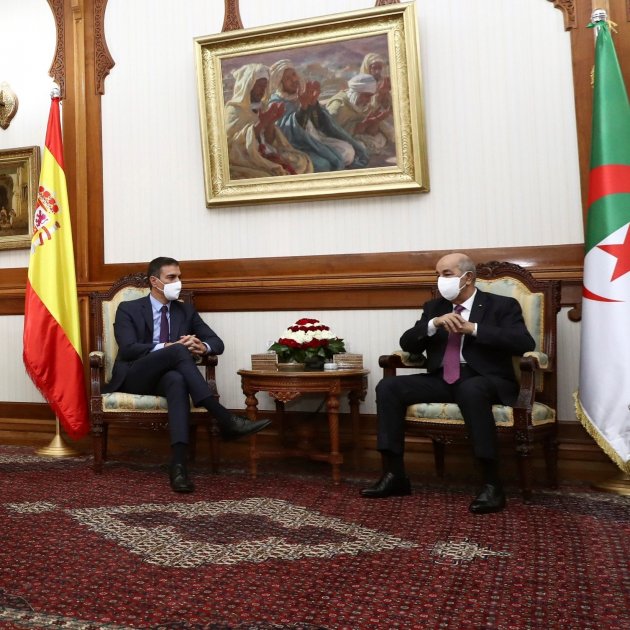Retaliation. Algeria has suspended its treaty of friendship with Spain over the Sánchez government's policy U-turn on Western Sahara, as announced by the country's president, Abdelmadjid Tebboune, due to the "unjustified" support for the Moroccan autonomy plan on the territory. Therefore, the Treaty of Friendship, Good Neighbourliness and Cooperation with Spain will be suspended "immediately" - almost two decades after it was signed, on October 8th, 2002. "The Spanish authorities have launched a campaign to justify the position they have taken on Western Sahara, a violation of their legal, moral and political obligations that weigh on the Kingdom of Spain as administrative power of the territory," it said.
In this regard, Algiers has protested the support by the Pedro Sánchez executive for an "illegal and illegitimate formula", that is, Western Sahara's autonomy within the Morocco state as proposed by Rabat, a colonial policy of "actions consummated" through "false arguments", according to the statement reported by the official news agency APS. The agency also reports that "the position of the Spanish government is incompatible with the international legitimacy obliged by its position as a managing power and with the efforts of the United Nations and the new personal envoy of the UN Secretary General, and contributes directly to the deteriorating situation in Western Sahara."
More retaliation
Already on Wednesday morning news had broken on the issue: Algeria is already boycotting Spanish products, in retaliation for its abandonment of the self-determination of Western Sahara. It has emerged that restrictions on imports of Spanish products have increased in the North African country since April. This started with beef purchases, but has now extended into other sectors, to the point of violating the association agreement with the European Union signed in 2005. This boycott was not recognized by the Algerian authorities, but the suspension of the treaty highlights the existence of significant retaliation by Algeria against Spain. A treaty that can be consulted in the Spain's official state gazette.
Among other things, the treaty of friendship between Algeria and Spain recognized in its general principles "respect for international law", "sovereign equality", "non-intervention in internal affairs", "a refrain from the threat or use of force"," peaceful settlement of disputes"," development cooperation"," respect for fundamental rights and fundamental freedoms of individuals" and "dialogue and understanding between cultures and civilizations". In other words, the 2002 Treaty of Friendship, Good Neighbourliness and Cooperation "has until now governed the development of relations between the two countries," as the Algerian presidency recalled on Wednesday.
Sánchez's silence
In fact, Spanish prime minister Sánchez was due to speak on Wednesday in the Congress of Deputies about the consequences for the relationship with Algeria of Spain's new relationship with Morocco. However, at no time did he mention the current situation in the bilateral relationship, although some parliamentary spokespeople mentioned the fact that the African country had recalled its ambassador for consultations (in March) after the Spanish state's U-turn on the Moroccan autonomy plan for the Sahara. The PM simply said that it was necessary to "assume a discourse of mutual respect, leaving aside elements that may offend each party."
In the two months since the Spanish recognition of the autonomy plan, the state executive has been quick to emphasize that Algeria is a "solid and reliable partner" and to emphasize that it has always fulfilled its international energy contracts, thus questioning whether the diplomatic crisis could have an impact on gas supply in Spain. In fact, in a parliamentary response on June 1st, the Spanish government argued that "with the current situation and with the reserves for slots and capacity already made by traders, there are no objective indications of a shortage of gas supply in the coming months."
